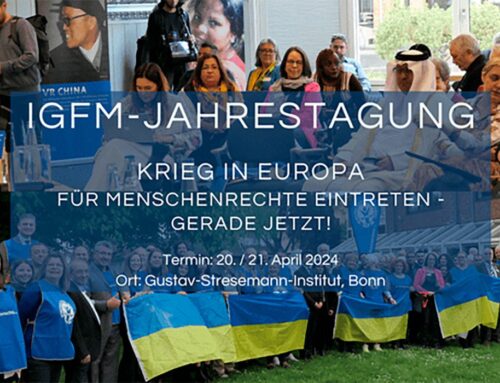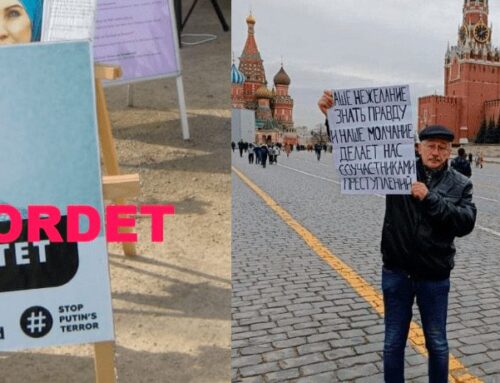
South Ossetian security forces have arrested a 37-year-old resident near the border with the self-proclaimed Republic of South Ossetia
On September 29, 2018, 37-year-old resident Maya Otiashvili was arrested near the border with the self-proclaimed Republic of South Ossetia.
The kidnapping of 37-year-old Georgian citizen Maya Otinashvili on the borderline with the self-proclaimed Republic of South Ossetia sparked widespread outrage. While the detainee is held in the Tskhinvali Detention Center, officials in Tbilisi declared that all international levers are being used for her release. The ruling party claims at the same time, that Otinashvili most likely suffered physical violence.
The Georgian citizen will be forced to remain in pretrial detention in Tskhinvali for the next 10 days. The court of the self-proclaimed republic, in which Maya Otinashvili was detained by the South Ossetian security forces near the village of Khurvaleti, ordered pre-trial detention for violating the so-called border. This was reported by the State Security Service of Georgia with reference to information they received via the hotline from representatives of the so-called prosecutors in Tskhinvali. Earlier, it was confirmed that Otinashvili would spend two months in custody. The father of the detainees, Levan Otinashvili, claims that his daughter was abducted from the area controlled by the Georgian authorities because she was visiting her parents during that time:
“She went to the garden to collect nuts. Then two masked men appeared, grabbed her and took her away. We did not even know where they had taken her, until we were contacted by them. Neighbors saw how they seized her. She is now in custody in Tskhinvali. We do not know anything else. We do not go to the other side. They (South Ossetian security forces) came over here – there’s a small abandoned building there, where they hid. ”
The chairman of the parliamentary majority of Georgia, Archil Talakwadse, said that according to his information, the woman was subjected to physical violence.
“It is very likely that Maya Otinashvili was maltreated and beaten. In this context, we call on the Observation Mission and independent observers to review this information and ensure her safety. We are taking steps to ensure that all international organizations, our partners, will respond to this alarming fact. As you can see, the occupying regime continues to kidnap our citizens. This is a very serious violation of human rights for which the Russian Federation is responsible.”
Officially, information about the use of force has not been confirmed by Maya Otinashvili. But Georgian Prime Minister Mamuka Bakhtadze told the Foreign Minister to inform all international organizations. A little later, Georgian Foreign Minister David Zalkaliani reported on the diplomatic work:
“We are in communication with the EU mission and co-chairs of the Geneva talks and this issue will be very actively discussed at the next round in Geneva, which is scheduled for next week.”
The office of Public Defense of Georgia responded to the imprisonment of Maya Otinashvili by the Russian military. He stated:
“On the morning of September 29, 2018, Maya Otinashvili, a citizen of Georgia and a mother of three minor children, was abducted from her own backyard near the occupied area in the village of Khurvaleti, near Gori municipality, according to information provided by the public defender’s witnesses. The abduction of the citizen was carried out by armed masked men from a Georgian-controlled area approximately 50 meters from the barbed wire, and on October 2 the de facto court sentenced Maja Otinashvili to two months in pre-trial detention for the so-called “illegal border crossing.” “We have become aware of new circumstances surrounding Maya Otinashvili, who was arrested on the occupied site. According to the family, the detainee was beaten; they claimed that it came to blows at the Russian police station in Kindzmani. Though the detainee has a lawyer, he was not allowed to visit Maya Otinashvili”. According to the family, no independent observer visited the detainees, which further reinforced his suspicions. The prisoner has also been accused of “helping citizens to ‘illegally cross the border’, in return for a fee,” said Nino Lomjaria, the Georgian public defender, in a statement.
In the meantime, Ketevan Tsikhelashvili, Minister of State for Reconciliation and Civil Liberties in Georgia, said that the Georgian authorities are doing everything they can to free Otinashvili:
“According to the latest information from the hotline, her health is satisfactory. The International Committee of the Red Cross is involved and it is in contact with the family members of the abductee. A procedural check has also been scheduled for the next two days in the case of illegal detention. We are interested in a quick release and are in contact “.
As a reminder, the 37-year-old woman was arrested on September 29. The KGB of the self-proclaimed Republic accused her of “illegal border violation”. According to the de facto claim, Otinashvili helped local residents to cross the border over a long period of time in exchange for a fee. Ketevan Tsikhelashvili did see this version as well-founded:
“Of course, you cannot talk about any charges when a person is actually trapped in their own house. When we say that Ossetians and Georgians are interested in moving in both directions, but they are prevented in doing so by artificial barbed wire, that’s a clear testament to the character of the regime and of who we are dealing with here.”
The fact that Otinashvili allegedly transported people across the line is also doubted on the other side of the barbed wire. According to observers, the version that the mother of three children in Gori, and not in Khurvaleti, as alleged in the statement of the South Ossetian KGB, was busy transporting people across the artificial border line, resembles an attempt by the self-proclaimed Republic’s security forces to increase their own bottom line. Residents of villages near the dividing line claim that security officers receive bonuses for each prisoner, and that kidnapping has become a lucrative business for South Ossetian border guards and the Russian military.








Leave A Comment